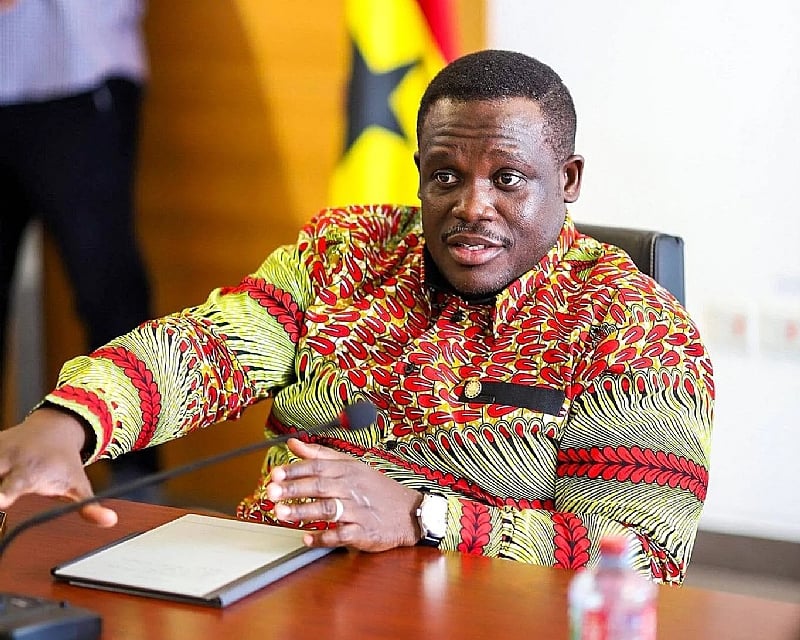The rising cost of internet data in Ghana has ignited a firestorm of public discontent, particularly on social media platforms like X (formerly Twitter). Users have consistently voiced their frustrations, decrying the perceived exorbitant data charges and calling for immediate government intervention. This outcry culminated in significant online attention directed at the Minister for Communication, Digital Technology and Innovations, Mr. Sam Nartey George, who became a trending topic as citizens demanded relief from what they see as an unreasonable financial burden. The Minister, acknowledging the public’s concerns, addressed the issue directly during the World Telecommunications and Information Society Day celebration, reaffirming his commitment to reducing data costs by the end of 2025. He emphasized the need for a strategic, process-driven approach, assuring Ghanaians that meaningful reforms are already underway to address the root causes of the inflated prices.
Mr. George explained that the issue of high data costs is not a simple matter of a ministerial decree. He pointed to a complex web of long-standing structural challenges within the telecom sector that have contributed to the current pricing predicament. These deep-rooted issues, he argued, require a more comprehensive and calculated solution than a mere stroke of the pen. Acknowledging the public’s desire for a quick fix, he stressed that his team is working diligently to unravel the complexities of the market distortions that have accumulated over the past eight years. To this end, he highlighted the formation of a dedicated committee tasked with developing a roadmap for reducing data prices. Remarkably, the committee delivered its recommendations within thirteen days, demonstrating the government’s commitment to addressing the public outcry.
The Minister further elaborated on the reasons behind the escalating data costs, citing tariffs as a significant contributing factor. Reports indicate that these tariffs have inflated data prices by more than 39%, exacerbating the financial strain on internet users. Mr. George’s promise of lower prices by the close of 2025 hinges on the successful implementation of the roadmap developed by the specialized committee. This roadmap, he explained, outlines a strategic plan to dismantle the entrenched structural issues within the telecom sector and pave the way for more affordable internet access for all Ghanaians. The Minister underscored the need for patience and trust in the process, emphasizing that the government is actively working towards a sustainable solution.
The implementation of the roadmap signifies a crucial turning point in Ghana’s efforts to make internet access more affordable and accessible. The plan likely addresses key factors contributing to the high costs, including infrastructure development, competition within the telecom market, and regulatory frameworks. By tackling these underlying issues, the government aims to create a more sustainable and competitive environment that will ultimately benefit consumers. The roadmap likely includes specific targets, timelines, and key performance indicators to track progress and ensure accountability. This transparency is designed to build public confidence and demonstrate the government’s commitment to fulfilling its promise.
The Minister’s public assurance, coupled with the development and implementation of a concrete roadmap, signals a concerted effort to resolve the pressing issue of high data costs. This proactive approach aims to mitigate the growing public frustration and ensure that internet access becomes more inclusive and less of a financial burden. The success of these reforms will undoubtedly play a crucial role in bridging the digital divide in Ghana and fostering greater participation in the digital economy. The anticipated reduction in data prices will not only empower individuals but also contribute to economic growth by facilitating online businesses, education, and access to information.
The focus now shifts to the meticulous execution of the roadmap’s recommendations. The government will likely face challenges in navigating the complexities of the telecom sector and implementing the necessary changes. However, the Minister’s commitment and the existence of a well-defined plan offer a glimmer of hope for more affordable internet access in Ghana. The ongoing dialogue between the government and the public will be essential in ensuring that the reforms are effective and responsive to the needs of the citizens. The ultimate goal is to create a digital environment that is accessible, affordable, and empowers all Ghanaians to participate fully in the digital age.














